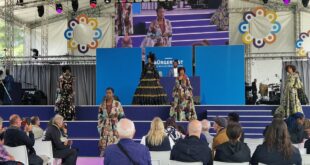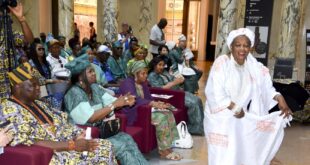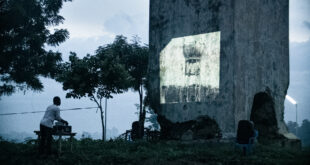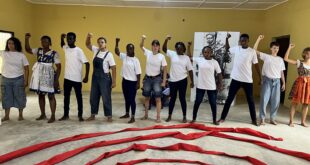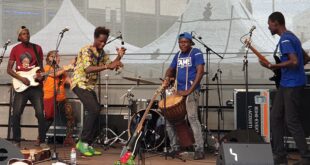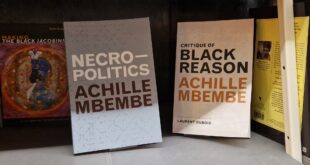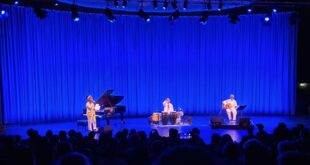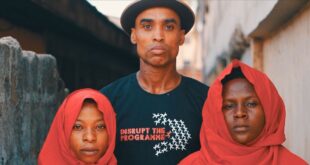Our contributing editor, Tina Adomako, narrates her impressions of a prestigious concert featuring multiple award-winner Angélique Kidjo when she performed, accompanied by a full symphony orchestra, to a sold-out house in the western German city of Dortmund on Wednesday
—
I rush through the busy Brückstraße, where Dortmund shows itself in all its diversity, and arrive just in time at the city’s Konzerthaus, where an almost exclusively white audience is waiting to hear “Africa’s premier diva,” a title TIME bestowed on Angélique Kidjo in 2007. Last year, the same magazine named her one of the 100 most influential people in the world.
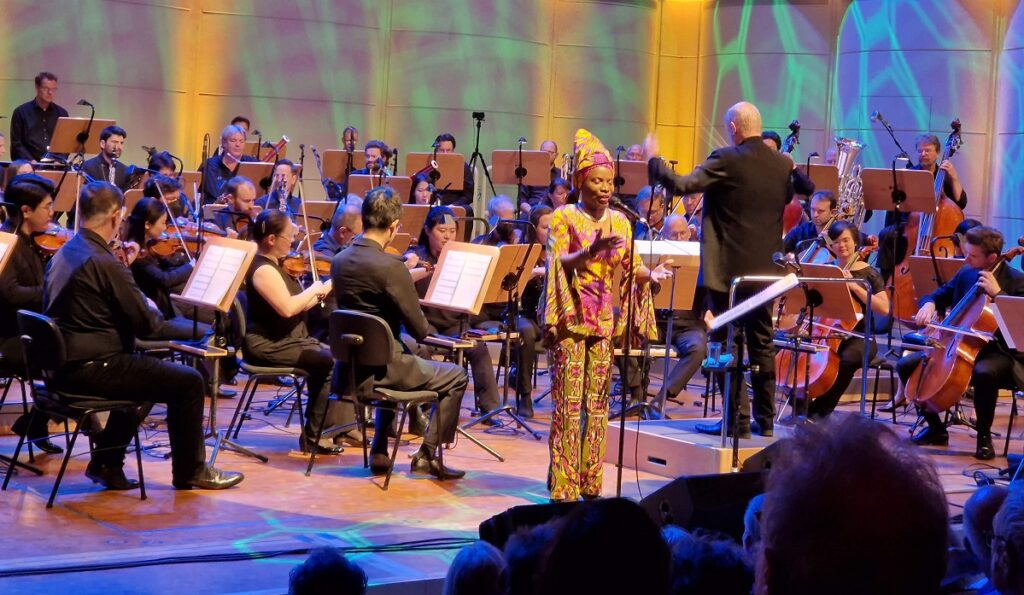
World star Angélique Kidjo campaigns for fair trade, for women’s rights and against weapons. Her songs often contain a strong political message. This was also the case this Wednesday evening at the Konzerthaus Dortmund, where the multiple Grammy Award winner presented a German program premiere.
The singer from Benin performed to a sold-out house accompanied by a full symphony orchestra, the Neue Philharmonie Westfalen, conducted by Gast Waltzing.
The evening begins with a symphonic intro, joined by the sound of a guitar before the singer’s deep voice opens the concert. For her second piece, she chooses a unique interpretation of Gershwin’s “Summertime” from the musical Porgy and Bess – fitting for the location, you might think. Except that she performs the well-known aria in Fon, one of her mother tongues, and at the end of the song asks the audience to ignore the orchestra, get up and dance.
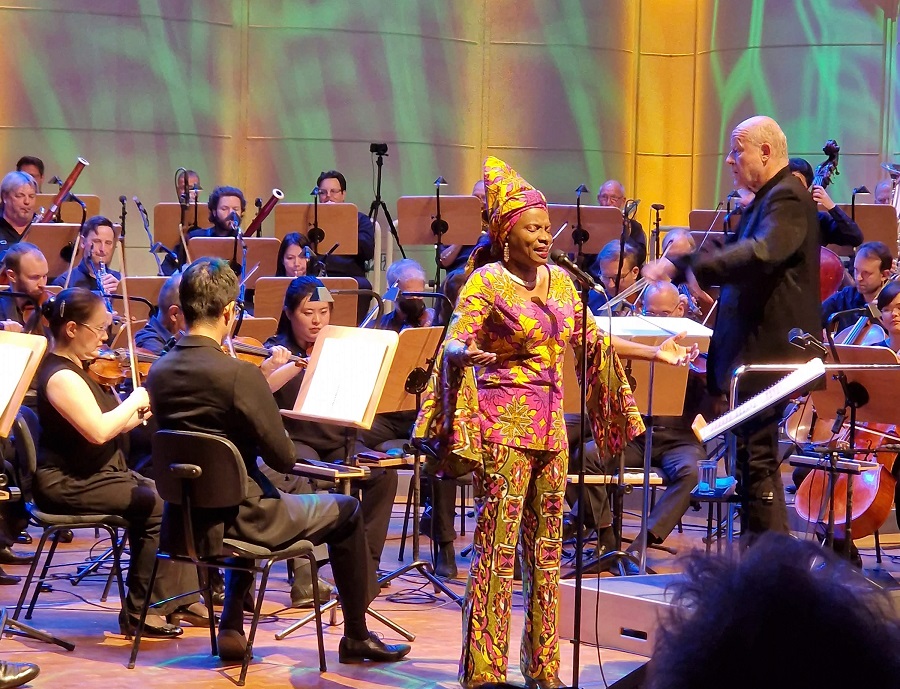
And she shows them how, herself dancing some Agbadja steps and moving to the music. But it is still too early for this audience. Kidjo has to perform over half a dozen songs and get the audience to sing along before they dare to clap their hands, join in singing a chorus and, in the end, even get up and move their bodies slightly to the beat.
Kidjo performs 16 songs and an encore, all sung in West African languages, except for the jazz standard “Petite Fleur,” which she sings in French, and the Miriam Makeba hit “Malaika” in Swahili.
In addition to her own compositions, all of which carry a political message – on women’s rights, education, the state of the world – she also sings a West African lullaby and vocalises Santana’s “Samba Pa Ti” with Yoruba lyrics.
She also treats the audience to a performance of her 1994 world hit “Agolo”. For me, however, this sounds a bit strange with orchestral accompaniment and I must admit that I much prefer the original version. In the version she presents in Dortmund, her voice is swallowed up by the orchestra – and this happens with a few of the other songs as well.
The most beautiful song of the evening, for me at least, was a ballad Kidjo performed with the orchestra sitting silent behind her. When Kidjo’s voice accompanied only by David Laborier on guitar filled the concert hall, that’s when the great voice of this wonderful singer truly came into its own.
What a pity that so few people from the Dortmunder Nordstadt were able to hear this performance.
 THE AFRICAN COURIER. Reporting Africa and its Diaspora! The African Courier is an international magazine published in Germany to report on Africa and the Diaspora African experience. The first issue of the bimonthly magazine appeared on the newsstands on 15 February 1998. The African Courier is a communication forum for European-African political, economic and cultural exchanges, and a voice for Africa in Europe.
THE AFRICAN COURIER. Reporting Africa and its Diaspora! The African Courier is an international magazine published in Germany to report on Africa and the Diaspora African experience. The first issue of the bimonthly magazine appeared on the newsstands on 15 February 1998. The African Courier is a communication forum for European-African political, economic and cultural exchanges, and a voice for Africa in Europe.



